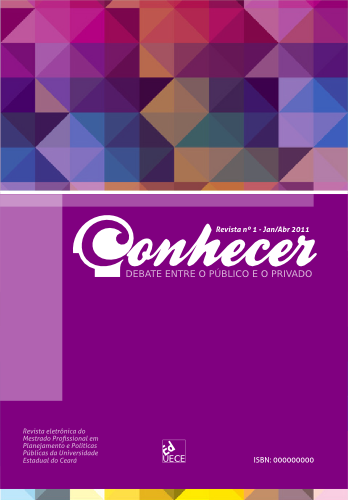Trabalho Escravo:
da ilegalidade do emprego às políticas no Estado do Pará
Palavras-chave:
trabalho escravo, relações de trabalho, políticas públicasResumo
O presente estudo trata do trabalho escravo no Estado do Pará. O foco central é analisar a implantação e efetividade de políticas públicas de erradicação do trabalho escravo, que conta hoje com novas formas de estrutura e funcionamento. Apesar de sua origem no Brasil ter sido estabelecida ainda no período colonial, hoje são grandes empresários que utilizam essa mão-de-obra, sendo um atentado contra a dignidade humana e de todo um ordenamento jurídico, caracterizando-se em si como um crime inaceitável. A problemática concentrou-se na indagação quanto aos fatores que contribuem para a erradicação do trabalho escravo no Estado do Pará, partindo-se do estudo da construção histórico-social do trabalho
escravo e seus aspectos legais, identificado os órgãos governamentais e não governamentais que desenvolvem ações para coibi-lo /ou erradicá-lo, analisando as políticas públicas implantadas no Estado. Os resultados expressam um avanço no Brasil, reconhecido internacionalmente, estando a região Norte na vanguarda desse processo, contudo, somente a federação tem desenvolvido ações no Estado, estando o poder local à margem dessas políticas.
Downloads
Referências
BRASIL. COMISSÃO ESPECIAL DO CONSELHO DE DEFESA DOS DIREITOS DA PESSOA HUMANA DA SECRETARIA ESPECIAL DOS DIREITOS HUMANOS. Plano nacional para a erradicação do trabalho escravo. Brasília, DF: OIT, 2003.
BRASÍLIA, DF. Secretaria Especial dos Direitos Humanos. II plano nacional para erradicação do trabalho escravo. Brasília, DF: SEDH, 2008.
COSTA, Patrícia Trindade Maranhão. Combatendo o trabalho escravo contemporâneo:o exemplo do Brasil. Organização Internacional do Trabalho -OIT; Escritório no Brasil –trabalho Escravo. Brasília, DF: ILO, 2010. 1 v.
CPT (Comissão Pastoral da Terra). Disponível em: . Acesso em 26 out.2010
FERNANDES, Luciana Sá. Contabilizando os custos do trabalho escravo em empresas e fazendas.Belém –Pará: PLADES/NAEA/UFPA, 2006.
GIL, Antônio Carlos.Como elaborar projetos de pesquisa.São Paulo: Atlas, 1991.
_______.Métodos e técnicas da pesquisa social.6ª Ed.São Paulo: Atlas, 1999.
LUDKE, Menga e ANDRÉ, Marli E.D.A. Pesquisa em Educação: Abordagens Qualitativas.São Paulo : E.P.U. 1986.
MARTINS, José de Souza. A escravidão nos dias de hoje e as ciladas da interpretação: reflexões sobre os riscos da intervenção subinformada. In: COMISSÃO PASTORAL DA TERRA (Org.). Trabalho escravo no Brasil contemporâneo.São Paulo: Loyola, 1999. p. 127-163.
MOROZ, Melania;GIANFALDONI,Mônica H. Tieppo Alves.O processo de pesquisa:iniciação.Brasília: Liber, Livro Editora, 2ª Ed., 2006.(Pesquisa, v.2)
OLIVEIRA, Ana Leonardo Nassar de; SETTON, Ana; Mônica de Carvalho (Orient.). A organização internacional do trabalho e a inteiração entre os atoreslocais globais no combate ao trabalho escravo contemporâneo no Brasil.2006. 63 f. Monografia (graduação em Relações internacionais)-Pontifícia Universidade Católica,São Paulo, 2006.
PICOLI, Fiorelo. O capital e a devastação da Amazônia.São Paulo: Expressão Popular, 2006.
Downloads
Publicado
Como Citar
Edição
Seção
Licença
Autores que publicam nesta revista concordam com os seguintes termos:
Autores mantém os direitos autorais e concedem à revista o direito de primeira publicação, com o trabalho simultaneamente licenciado sob a Licença Creative Commons Attribution que permite o compartilhamento do trabalho com reconhecimento da autoria e publicação inicial nesta revista.




